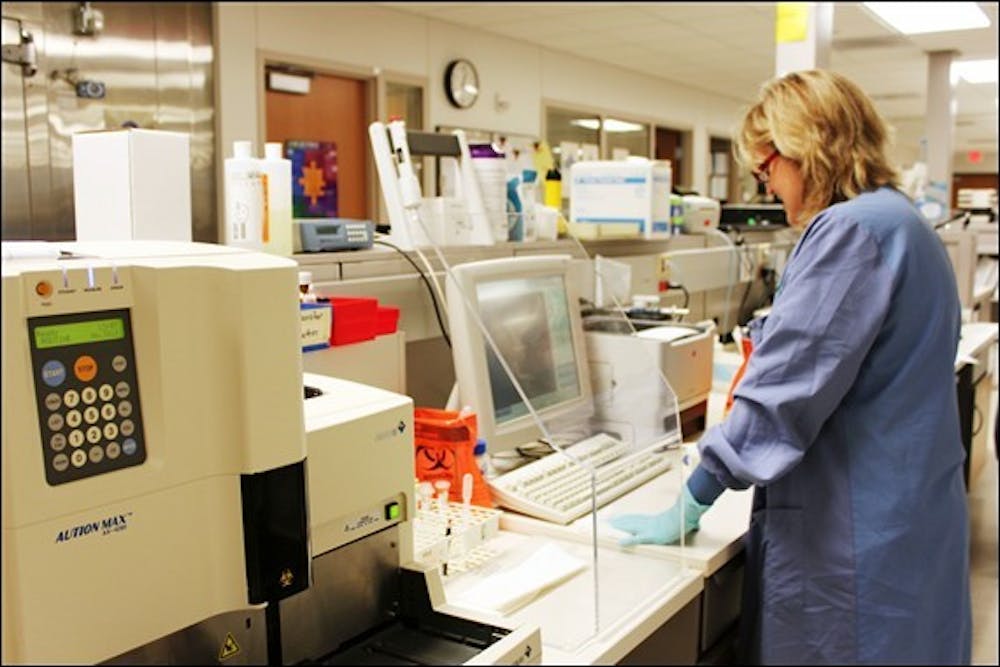Ginette Archinal never wanted to work in the American health care system. But after marrying an American, Archinal entered the system she had long characterized as unjust.
"I have fundamental problems with a nation that denies basic health care to people," she said. "I basically know what it's like to work in a system where everybody has access to health care, so I have a perspective on where things are going now."
But following the recent health care bill, Archinal said the nation has made a step in the right direction.
After attending medical school in Australia and working in the Australian health care system, Archinal moved to London in 1988, where she worked for the National Health Service. In 1995, she moved to the United States where she did a residency in the hospital system before entering private practice in 1998. In 2002, she opened her own practice with a partner in Cary, N.C.
Q: What are some of the key impacts of the health care bill?
A: The first changes under Obamacare, which I consider a positive term, really started around September of last year and the initial changes were mandated to start Jan. 1. The initial ones include that children up to the age of 26, whether full-time students or not and even if they're working, can be covered under their parents' health insurance.
They can also no longer deny coverage or outrageously increase premiums for children with pre-existing conditions. That means if you're a parent and you've changed jobs, which has happened with the recession, and you have a child with asthma, any claim for it would not have been covered. One of the primary causes of bankruptcy has been things like that. In terms of investment in the future of America, the improvement in children's health alone justified anything else that's in the bill. As a physician, it is so nice to know that people are going to be taken care of because that's the sort of thing we worry about.
Q. How has the medical profession been impacted?
A: Another thing I think primary care in general is excited about is the fact that primary care will be recognized as a valuable part of health care provision. Primary care gets paid significantly less for doing the same job as a specialist, which means they earn sufficiently less. Medical students don't go into primary care because they have to pay off medical school loans and the fewer primary are doctors you have, the more likely people are to get care through ER and the more likely people are to wait until they're really sick. I see the changes as improving health care of residents fundamentally. A healthier population is a more productive population.
Q: How have patients responded?
A: Most people felt the system worked very well, but that changed when the recession hit. A lot of people who have spent their entire life having wonderful health care through a provider for no cost suddenly didn't have a job. The biggest input I got from patients is that they could not afford COBRA, a system whereby if you lose your job and you'd had employer-provided health care, you can still purchase it at a negotiated rate for 18 months. What came as a huge shock to those of my patients in this position was the cost of COBRA. The first change to health care was legislation sponsored by Obama and the Democrats subsidizing COBRA up to 35 percent. People on COBRA now pay only 65 percent of what it would cost otherwise, which is huge.
Q: What personal experiences have you had in your practice that had influenced your perception of the bill?
A: In July of last year, I saw the son of a patient who didn't have health insurance. He came to me with pain in the hand — after being injured earlier in the year, he had gone to urgent care and was told it was fine. When I saw it, I thought he had a particular break and sent him to an orthopedist who operated on it. The insurance company denied the claim because it was a pre-existing condition. If Obamacare had been in place at the time of the injury, he would have had insurance. Now you have a 24-year old who will have years to pay his hospital bill. That's money he can't invest in the economy, can't put toward a home. That's the sort of thing that's no longer going to happen.
Q: In your opinion, why has the political debate surrounding this issue been so heated?
A: I think the Democrats have done a poor job of explaining the realities of the bill, and they did particularly bad with the Medicare population. Medicare didn't cover most preventative health care but it now does. You've got a population who has great health problems who are now more likely to come in for an annual check rather than waiting until they're seriously ill. I think the Republican Party did a much better job of scaring people than Democrats did on explaining the benefits.


